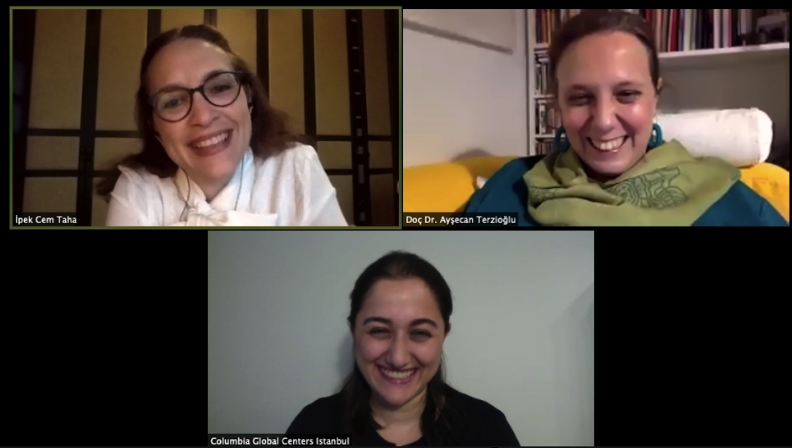What Kind of Social Transformation Will COVID-19 Bring?: Limits and Possibilities

On April 21st, 2020, Columbia Global Centers | Istanbul hosted Sabancı University Associate Professor Ayşecan Terzioğlu for a live webinar on “What Kind of Social Transformation Will COVID-19 Bring?: Limits and Possibilities” in conversation with İpek Cem Taha, Director of Columbia Global Centers | Istanbul.
Prof. Terzioğlu talked about a wide range of topics including the health system, state-citizen relations, the impact of COVID-19 on fragile communities and international cooperation from a health anthropology perspective.
Some highlights from her talk include the following:
Prof. Terzioğlu said that stigmatization and discrimination continue to spread more rapidly than COVID-19 itself, not only in Turkey but also across the world. Unfortunately, this is not the first time we are facing stigma and discrimination during a pandemic. She gave the example of HIV/AIDS, when it first emerged. Because of scientific uncertainties and inaccurate information, HIV created a fear in the public, which resulted in increased discrimination against the LGBTQ population.
Since COVID-19 originated in Wuhan, China, many politicians, including President Trump, have been calling it the “China Virus,” which fueled stigmatization of Chinese people all around the world. According to Prof. Terzioğlu, there are two specific reasons behind this: China is becoming an increasingly politically and economically powerful global actor and rivalling European countries and the U.S on the world stage. The second reason is that there are many unknowns about new diseases and these unknowns are replaced with false knowledge like conspiracy theories. These stigmatization and conspiracy theories give a kind of a false sense of calmness, a temporary psychological function, to some people.
Prof. Terzioğlu also underlined that the COVID-19 outbreak has disproportionately affected people in humanitarian crises, particularly displaced populations living in camps or in cities across the world. Besides refugees, other groups such as lower-income families, the elderly, and persons with disabilities are often faced with challenges and vulnerabilities like losing income and difficulties in accessing health services. She also noted that local and central authorities, as well as NGOs, should work together to help those who have limited financial resources and access to services. Last but not least, she added that the lack of transparency around data is the most important problem, which causes an erosion of trust in the government.